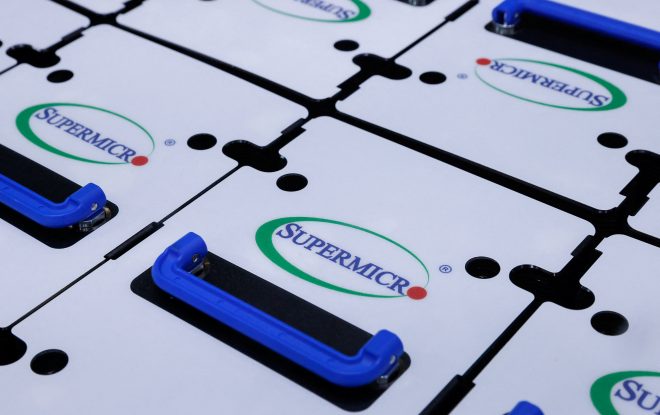Palantir Stock vs. Amazon Stock: Wall Street Says Buy One and Sell the Other
Artificial intelligence (AI) platforms let businesses develop and deploy machine learning models across use cases like content generation, predictive insights, and decision-making, and demand is increasing rapidly. “AI platforms will be the fastest growing technology in the years to come,” according to Andrea Minonne, research manager at the International Data Corporation (IDC).
IDC estimates AI-platform spending will compound at 51% annually through 2028. That bodes well for Palantir Technologies (NYSE: PLTR) and Amazon (NASDAQ: AMZN), but Wall Street analysts expect the stocks to move in opposite directions over the next year.
-
Palantir has a median price target of $27 per share, based on the estimates of 24 analysts. That implies a 27% downside from the current share price of $37.
-
Amazon has a median price target of $220 per share, based on the estimates of 64 analysts. That implies a 15% upside from its current share price of $191.
Here’s what investors should know about these AI stocks.
1. Palantir
Palantir specializes in data analytics software. Its primary platforms, Foundry and Gotham, let businesses integrate data, develop machine learning models, and interact with those digital assets through prebuilt and custom applications that improve decision-making. AIP (Artificial Intelligence Platform) enhances Foundry and Gotham by adding support for large language models and generative artificial intelligence.
Palantir’s introduction of AIP last year captured the attention of analysts, and the company has been praised for its technological prowess. In August, Forrest Research recognized the company’s leadership in AI and machine learning platforms. And in September, Dresner Advisory Services awarded Palantir the No. 1 spot in its AI, data science, and machine learning market study.
Palantir reported strong financial results in the second quarter. Revenue increased 27% to $678 million, and non-GAAP earnings jumped 80% to $0.09 per diluted share. Chief Executive Officer (CEO) Alex Karp attributed the strong performance to an “unrelenting wave of demand from customers for artificial intelligence systems that go beyond merely performative and academic.” In other words, businesses want products that make AI useful in real-world situations, and Palantir provides that with AIP.
The problem with Palantir is its valuation. Wall Street expects adjusted earnings to grow at 21% annually through 2026. That makes the current valuation of 115 times adjusted earnings look outrageously expensive.
Shares charged higher after the second-quarter report, and the stock continued climbing when Palantir was added the S&P 500 this month. But at the stock’s current price, investors should avoid the stock and consider trimming their positions.
2. Amazon
Amazon has a strong presence in e-commerce, digital advertising, and cloud computing, and the company is gaining share across all three markets. According to eMarketer, the company will account for 40.4% of online retail sales in the U.S. this year, up from 39.6% last year. Amazon will also capture 13.9% of domestic digital ad spending this year, up from 12.5% last year, due to its dominance in the quickly growing retail media market.
Meanwhile, Amazon Web Services (AWS) accounted for 32% of cloud infrastructure and platform services spending in the second quarter, up from 31% in the previous quarter, according to Synergy Research Group. And chief information officers (CIOs) recently surveyed by Morgan Stanley selected Microsoft Azure and AWS as the public clouds most likely to gain share in generative AI over the next three years. For AWS, that hints at strong demand for its AI platforms SageMaker and Bedrock.
Amazon reported mixed results in the second quarter. Total revenue increased 10% to $148 billion, falling short of the $148.6 billion analysts forecasted. The reason for the shortfall was light advertising revenue. But GAAP earnings still jumped 94% to $1.26 per diluted share, crushing the consensus estimate of $1.03 per diluted share. However, the stock declined sharply when management provided underwhelming guidance, but patient investors have good reason to be optimistic.
Three tailwinds should make Amazon more profitable in the next few years. First, the company is regionalizing its fulfillment network to streamline logistics and lower costs. Second, revenue is growing more quickly in the high-margin cloud and advertising segments, as compared to the low-margin retail segment. Third, cooling inflation should encourage consumer and business spending.
With that in mind, Wall Street expects Amazon’s earnings to grow at 25% annually through 2026. That makes the current valuation of 46 times earnings seem reasonable, which lends credit to the median price target of $220 per share. More importantly, I think investors who buy a position in Amazon today will be very happy with their decision in five years.
Should you invest $1,000 in Palantir Technologies right now?
Before you buy stock in Palantir Technologies, consider this:
The Motley Fool Stock Advisor analyst team just identified what they believe are the 10 best stocks for investors to buy now… and Palantir Technologies wasn’t one of them. The 10 stocks that made the cut could produce monster returns in the coming years.
Consider when Nvidia made this list on April 15, 2005… if you invested $1,000 at the time of our recommendation, you’d have $740,704!*
Stock Advisor provides investors with an easy-to-follow blueprint for success, including guidance on building a portfolio, regular updates from analysts, and two new stock picks each month. The Stock Advisor service has more than quadrupled the return of S&P 500 since 2002*.
*Stock Advisor returns as of September 23, 2024
John Mackey, former CEO of Whole Foods Market, an Amazon subsidiary, is a member of The Motley Fool’s board of directors. Trevor Jennewine has positions in Amazon and Palantir Technologies. The Motley Fool has positions in and recommends Amazon, Microsoft, and Palantir Technologies. The Motley Fool recommends the following options: long January 2026 $395 calls on Microsoft and short January 2026 $405 calls on Microsoft. The Motley Fool has a disclosure policy.
Palantir Stock vs. Amazon Stock: Wall Street Says Buy One and Sell the Other was originally published by The Motley Fool




Leave a Reply